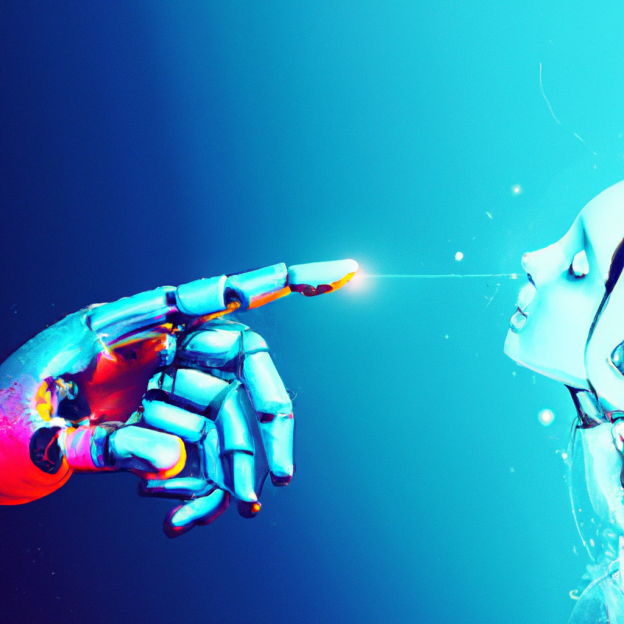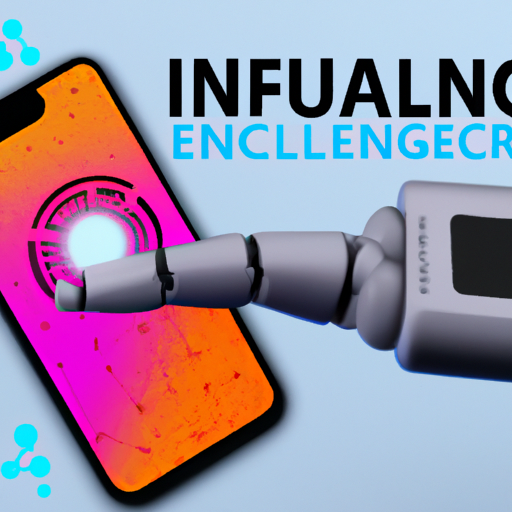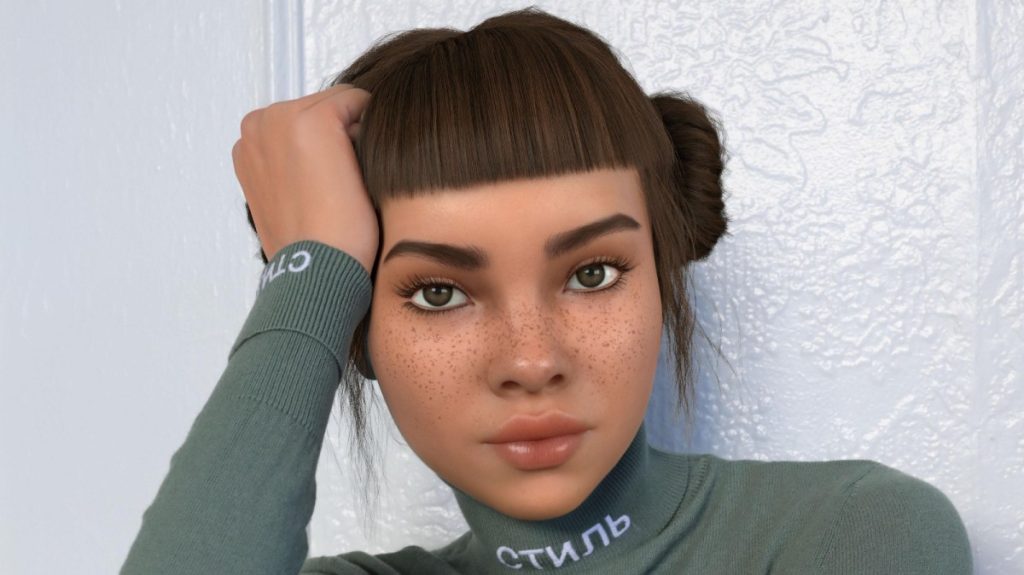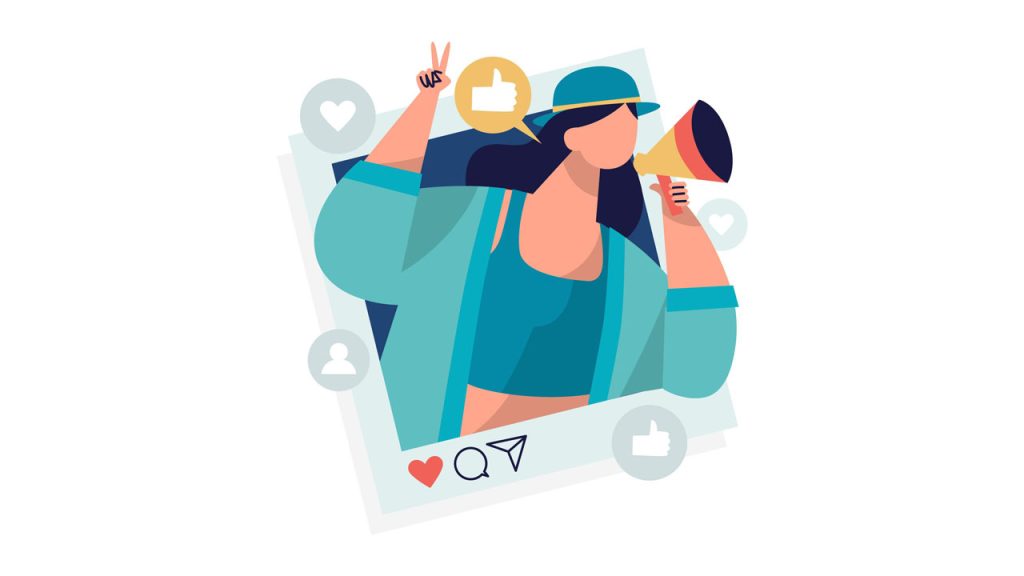Imagine a world where your favorite social media influencers are no longer human, but rather sophisticated AI algorithms meticulously designed to capture your attention and influence your purchasing decisions. This may sound like a scene from a futuristic sci-fi movie, but it’s a very real possibility that experts are currently debating. In this article, we’ll explore the future of influencer marketing and examine the potential clash between AI and human influencers. Will AI ultimately replace human influencers, or will there always be a place for authentic human relatability in the ever-evolving world of digital marketing? Let’s find out.
What is influencer marketing?
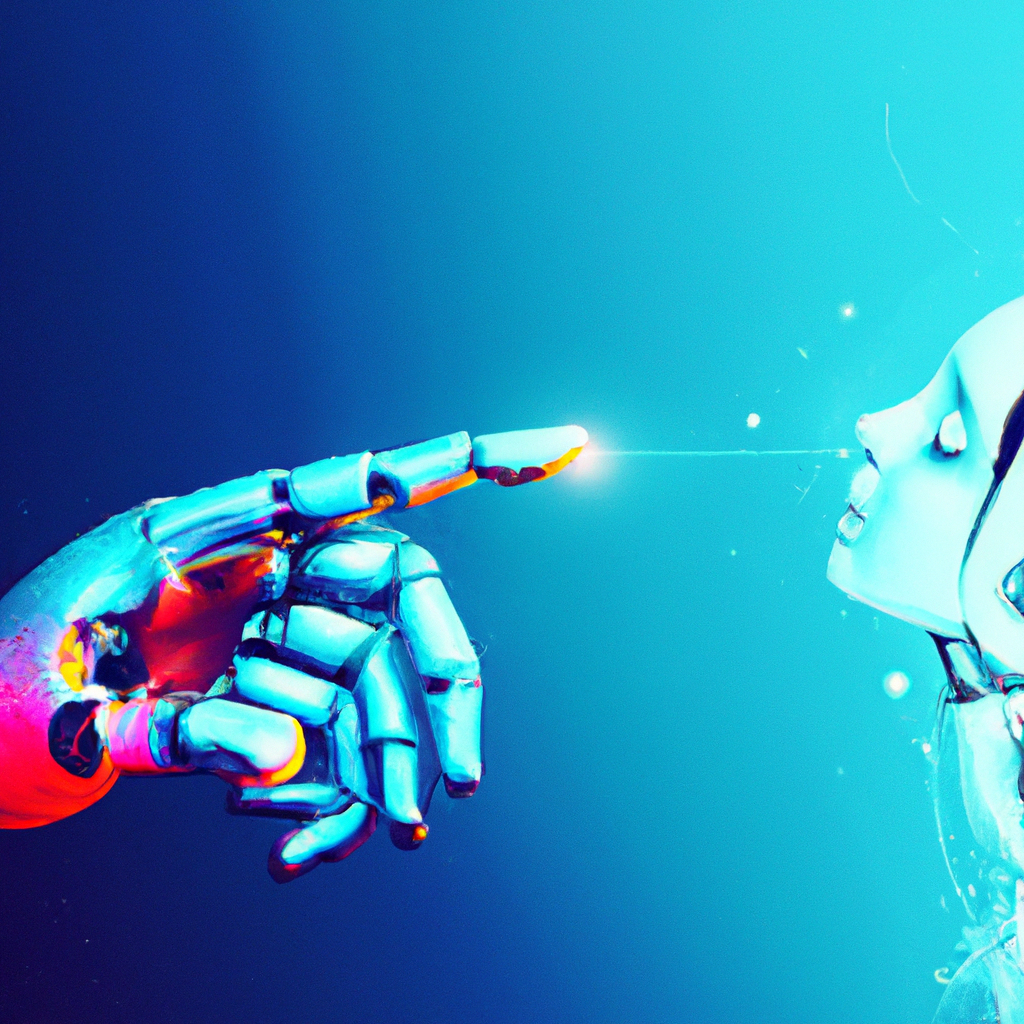
Definition of influencer marketing
Influencer marketing is a strategic approach that leverages the popularity and influence of individuals or online personalities to promote a brand or product. It involves collaborating with influencers, who have a significant number of engaged followers on social media platforms, to create authentic and relatable content that resonates with their audience. Through influencer marketing, brands aim to tap into the trust and credibility that influencers have built with their followers, ultimately increasing brand awareness, driving customer engagement, and boosting sales.
Importance of influencer marketing in today’s digital landscape
In today’s digital landscape, where consumers are bombarded with advertisements and have developed a strong skepticism towards traditional marketing tactics, influencer marketing has emerged as a powerful tool for brands to reach and engage with their target audience. Rather than relying solely on traditional advertising methods, brands are now realizing the immense value of partnering with influencers who have already established a genuine connection with their followers.
Influencer marketing allows brands to:
-
Reach a highly targeted audience: By collaborating with influencers who specialize in specific niches, brands can ensure that their message reaches the right audience, increasing the likelihood of conversion.
-
Build trust and credibility: Consumers are more likely to trust recommendations from individuals they perceive as genuine and knowledgeable. By associating with influencers, brands can tap into their authenticity and expertise, thereby enhancing their own credibility.
-
Create authentic and engaging content: Influencers have a deep understanding of what resonates with their audience, allowing brands to create content that is relatable, engaging, and tailored to the preferences of their target market.
-
Drive brand awareness and visibility: Influencers have a wide reach and can help brands expand their visibility, particularly among demographics that may be difficult to reach through traditional advertising channels.
-
Boost sales and revenue: Studies have shown that influencer marketing campaigns can have a significant impact on sales, with consumers being more likely to make a purchase based on recommendations from influencers they trust.
The rise of AI in influencer marketing
Introduction of AI technology in influencer marketing
With the rapid advancement of technology, artificial intelligence (AI) has begun to make its mark in influencer marketing. AI refers to the simulation of human intelligence in machines that are programmed to perform tasks that normally require human intelligence, such as processing and analyzing large amounts of data, understanding natural language, and making predictions. In influencer marketing, AI is being utilized to enhance various aspects of campaign planning, execution, and measurement, leading to more efficient and effective influencer marketing strategies.
Benefits of AI in influencer marketing
AI has several benefits when applied to influencer marketing:
-
Improved data analysis: AI algorithms can process vast amounts of data, including social media engagement metrics, consumer behavior patterns, and demographic information, to provide deeper insights into audience preferences and influencer performance. This enables brands to make data-driven decisions, resulting in more targeted and effective influencer campaigns.
-
Enhanced audience identification: AI-powered tools can efficiently identify and segment target audiences based on various factors, such as interests, demographics, and online behaviors. By accurately identifying the most relevant audience segments for a brand, AI streamlines the influencer selection process, ensuring a higher potential for engagement and conversion.
-
Automated campaign management: AI automates various aspects of influencer campaign management, such as influencer discovery, negotiation, content approval, and performance tracking. This saves time and resources, allowing brands to streamline their influencer marketing processes and focus on strategy and creativity.
-
Predictive analytics for improved ROI: AI algorithms can analyze historical data and predict the outcome of influencer marketing campaigns, helping brands optimize their strategies for better return on investment (ROI). By identifying trends and patterns, AI empowers brands to make informed decisions that maximize their marketing spend.
-
Enhanced content creation and optimization: AI tools can assist in content creation and optimization by analyzing data to identify the best-performing content formats, themes, and messaging strategies. AI-powered platforms can generate data-driven recommendations for influencers, enabling them to create more engaging and effective content tailored to their audience.
Examples of AI-powered influencer marketing platforms
Several AI-powered influencer marketing platforms have emerged in recent years, offering valuable features and capabilities that enhance brand-influencer collaborations. Examples of such platforms include:
-
Brandnew IO: Brandnew IO utilizes AI and machine learning to connect brands with the most suitable micro and macro-influencers for their campaigns. The platform provides data-driven insights, influencer performance prediction, and campaign management tools to optimize influencer marketing efforts.
-
Upfluence: Upfluence leverages AI algorithms to identify the most relevant influencers for brands by analyzing millions of social media profiles. The platform also provides AI-powered content analysis and tracking features for efficient campaign management and measurement.
-
NeoReach: NeoReach combines AI and social listening to identify influencers, create audience segments, and optimize campaign performance. The platform offers advanced analytics and predictive modeling to help brands drive better results from their influencer marketing initiatives.
-
Traackr: Traackr utilizes AI and natural language processing to discover influencers, evaluate their audience reach and engagement, and measure the impact of influencer campaigns. The platform offers comprehensive influencer management features, enabling brands to streamline their influencer marketing strategies.
Strengths of AI in influencer marketing
Ability to analyze vast amounts of data
One of the greatest strengths of AI in influencer marketing is its ability to process and analyze vast amounts of data at a speed that would be impossible for humans to achieve. AI algorithms can analyze social media data, consumer behavior patterns, and influencer performance metrics to extract valuable insights and identify trends that can inform influencer marketing strategies. This enables brands to make data-driven decisions, ensuring that their influencer campaigns are targeted and optimized for success.
Efficient identification of target audience
Another strength of AI in influencer marketing is its ability to efficiently identify and segment target audiences based on various factors such as interests, demographics, and online behaviors. AI-powered tools can analyze large datasets to pinpoint the most relevant audience segments for a brand, allowing for more precise influencer selection and increased potential for engagement and conversion. By narrowing down the target audience effectively, brands can optimize their influencer marketing efforts and increase the likelihood of reaching the right consumers.
Automated campaign management
AI automates various aspects of influencer campaign management, saving time and resources for brands. AI-powered platforms can handle influencer discovery, negotiation, content approval, and performance tracking, streamlining the influencer marketing process and allowing brands to focus on strategy and creativity. Automated campaign management not only increases efficiency but also reduces the potential for human error, ensuring smooth and seamless influencer collaborations.
Predictive analytics for improved ROI
AI’s ability to analyze historical data and predict the outcome of influencer marketing campaigns is a significant strength. By applying predictive analytics, AI algorithms can help brands optimize their influencer strategies, allocate budgets effectively, and maximize their return on investment. By identifying trends and patterns in data, AI empowers brands to make informed decisions that lead to more successful influencer marketing initiatives, ultimately driving better ROI.
Enhanced content creation and optimization
AI-powered tools can provide valuable insights and recommendations for influencer content creation and optimization. By analyzing data on content format, themes, and messaging strategies, AI algorithms can guide influencers in creating content that is more engaging and effective. This not only improves the quality of influencer content but also increases the likelihood of resonating with the audience. AI can suggest data-driven content strategies, enabling influencers to maximize the impact of their campaigns and deliver more value to brands.
Limitations of AI in influencer marketing
Lack of human touch and authenticity
While AI brings numerous benefits to influencer marketing, it does have limitations. One major limitation is the lack of human touch and authenticity that can only be provided by human influencers. Automated processes and algorithms cannot replicate the genuine connection and personal touch that human influencers establish with their audience. The emotional resonance that comes from a relatable, human connection is challenging to replicate through AI, and this can impact the overall effectiveness of influencer marketing campaigns.
Challenges in understanding complex human emotions
AI algorithms often struggle with understanding and interpreting complex human emotions, which can limit their effectiveness in influencer marketing. Influencers tap into their emotional intelligence to connect with their audience and evoke certain feelings or responses. AI may struggle to accurately identify and respond to subtle emotional nuances, potentially leading to less impactful content and reduced audience engagement. The ability of human influencers to understand and connect emotionally with their audience remains a unique advantage that AI cannot fully replicate.
Potential bias in AI algorithms
Another limitation of AI in influencer marketing is the potential for bias in the algorithms. AI algorithms are created based on data, and if the underlying data used for training the algorithm is biased, it can lead to biased recommendations and decisions. This can manifest in influencer selection, content creation, and audience segmentation, potentially excluding certain groups or perpetuating stereotypes. Brands must be mindful of this limitation and ensure that they evaluate and address any biases present in AI algorithms.
Risk of negative impact due to algorithm errors
AI algorithms are not infallible and can make errors. If an algorithm makes a mistake in influencer selection, content optimization, or audience targeting, it can have a negative impact on the effectiveness of influencer marketing campaigns. Errors can lead to mismatched influencers, irrelevant content, or ineffective targeting, which can result in wasted marketing spend and a diminished brand reputation. Brands must carefully monitor and evaluate the performance of AI algorithms to minimize the risk of such errors and their associated consequences.
Difficulty in adapting to rapidly changing trends
AI algorithms generally rely on historical data to make predictions and recommendations. While this can be beneficial for analyzing past trends and patterns, it can pose a challenge when it comes to rapidly changing trends in influencer marketing. Influencer landscape, consumer preferences, and social media trends can evolve quickly, which may result in outdated recommendations or strategies from AI-powered platforms. Brands must be certain to stay updated with the latest trends and ensure that AI algorithms can adapt and respond appropriately to the dynamic nature of influencer marketing.
The role of human influencers
The enduring value of human connection
Human influencers possess a unique ability to establish a genuine connection with their audience, creating a sense of trust and authenticity that AI cannot replicate. The power of human connection lies in the relatability and empathy that influencers bring to their content. By sharing personal experiences, opinions, and stories, influencers create an emotional bond with their followers, making them more receptive to brand messages and recommendations. This enduring value of human connection is foundational to influencer marketing and cannot be replaced by AI.
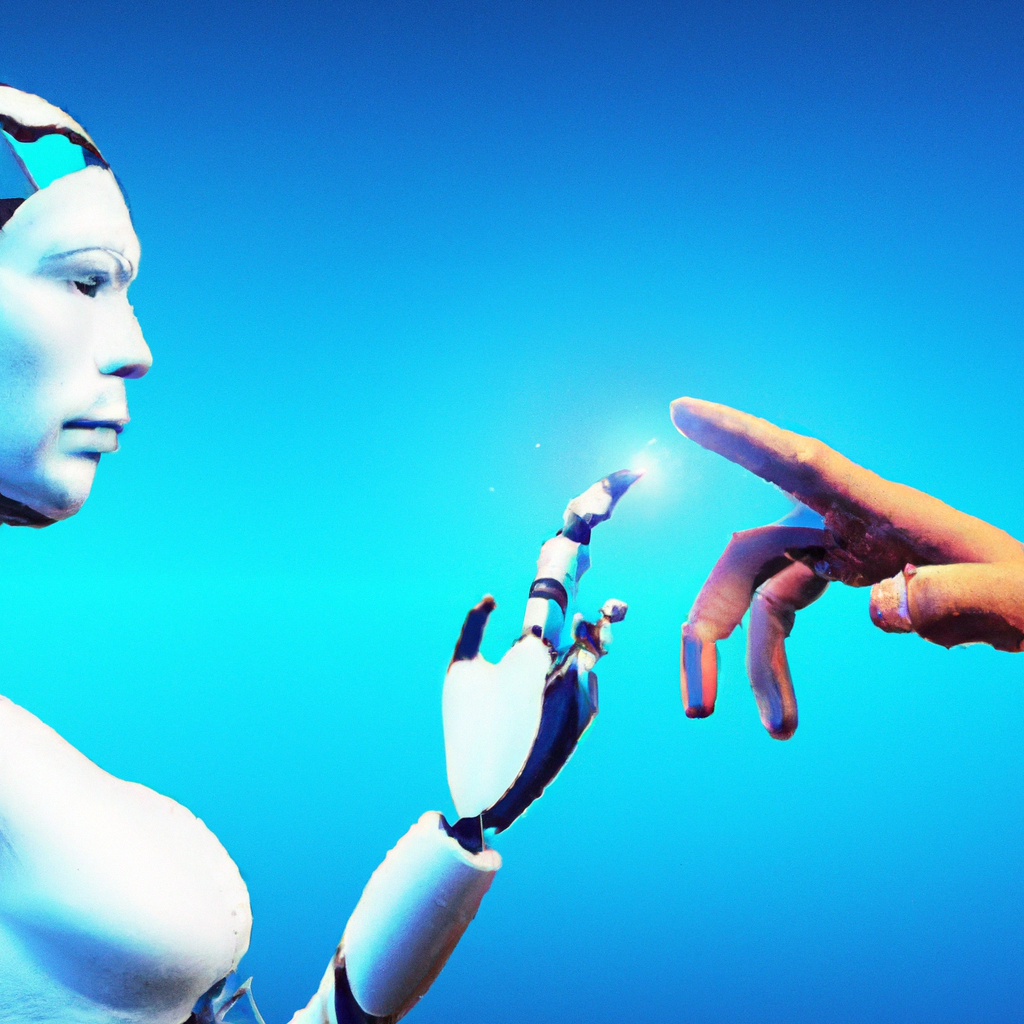
Authenticity and storytelling in influencer marketing
Human influencers excel in storytelling and authenticity, which are fundamental elements of successful influencer marketing. Through storytelling, influencers can captivate their audience, creating a narrative that resonates and engages. Authenticity is crucial in influencer marketing, as consumers navigate through a saturated digital landscape, seeking genuine voices they can trust. Human influencers bring their unique perspectives, experiences, and personalities to their content, establishing an authentic and relatable connection. The ability to tell compelling stories and embody authenticity sets human influencers apart and contributes to the effectiveness of influencer marketing.
Building trust and credibility
Human influencers have the advantage of building trust and credibility through their authentic presence. Followers often view influencers as a trusted friend or expert in their respective fields, relying on their recommendations and opinions. This relationship of trust and credibility can significantly influence consumer behavior and purchasing decisions. Human influencers invest time and effort in fostering genuine connections with their audience, building a loyal and engaged following that is more likely to be receptive to brand partnerships. The trust and credibility human influencers bring to influencer marketing efforts are invaluable and difficult to replicate through AI.
Flexibility and adaptability to changing market dynamics
One of the key advantages of human influencers is their ability to adapt to changing market dynamics and audience preferences. Human influencers can quickly react to emerging trends and tailor their content accordingly. They have the flexibility to shift their focus, experiment with new formats, and align with evolving consumer interests. This agility allows human influencers to stay relevant and engaged with their audience, providing brands with the opportunity to tap into current conversations and cultural moments in their influencer marketing campaigns. The ability to adapt to rapidly changing market dynamics is an advantage that human influencers bring to influencer marketing.
Advantages of human influencers over AI
Human influencers provide several advantages over AI in influencer marketing:
-
Emotional connection and relatability: Human influencers establish a genuine emotional connection with their audience, fostering a sense of relatability and trust that AI cannot replicate.
-
Personalized storytelling: Human influencers excel in crafting personalized and authentic stories that resonate with their audience, creating a deeper engagement and emotional impact.
-
Adaptability and agility: Human influencers have the ability to quickly adapt to changing market dynamics and audience preferences, enabling brands to stay relevant and capitalize on emerging trends.
-
Unique perspectives and expertise: Human influencers offer their own unique perspectives, experiences, and expertise, adding depth and credibility to influencer marketing campaigns.
-
Creativity and spontaneity: Human influencers bring their creativity and spontaneity to their content, making it more engaging and entertaining for their audience.
The coexistence of AI and human influencers
How AI can complement human influencers
AI and human influencers can complement each other in influencer marketing campaigns, leveraging the strengths of both for optimal results. AI can support human influencers by providing data-driven insights, optimizing campaign strategies, and streamlining processes. AI algorithms can analyze large datasets to identify the most relevant influencers for a brand, guiding the influencer selection process. Additionally, AI can provide recommendations for content creation and optimization, helping influencers maximize engagement and ROI. By leveraging AI’s capabilities, human influencers can enhance the effectiveness of their campaigns and deliver more value to brands.
Collaborative efforts to leverage strengths
Brands can foster collaborative efforts between AI and human influencers to leverage their respective strengths. AI can help human influencers with data analysis, audience segmentation, and performance tracking, enabling them to make more informed decisions and optimize their campaigns. On the other hand, human influencers can offer their unique perspectives, creativity, and authentic storytelling, enhancing the emotional connection and relatability that AI cannot replicate. By combining the strengths of both AI and human influencers, brands can create more impactful and effective influencer marketing campaigns.
Creating hybrid influencer campaigns
A hybrid approach that combines AI-driven influencer marketing with human influencers can offer the best of both worlds. Brands can leverage AI algorithms to identify the most relevant influencers for their campaign objectives and audience segments. Simultaneously, they can collaborate with human influencers to create content that is relatable, authentic, and emotionally engaging. This blend of AI and human influence allows brands to reach a larger audience, optimize targeting, and harness the power of human connection. Hybrid influencer campaigns can provide a unique and comprehensive approach to influencer marketing.
Examples of successful AI-human influencer collaborations
Numerous successful collaborations between AI and human influencers have emerged in recent years. For instance, brands like L’Oréal and Sephora have utilized AI-powered platforms to analyze customer data, identify suitable influencers, and optimize campaign strategies. Simultaneously, they have partnered with human influencers who can create engaging content and connect with their audience on a personal level. This combined approach has resulted in highly successful influencer marketing campaigns that drive brand awareness, engagement, and sales. These examples demonstrate the potential for AI and human influencers to work collaboratively to achieve optimal results.
The future of influencer marketing
AI as a powerful tool in influencer marketing
AI is poised to play a significant role in the future of influencer marketing. With advancements in AI technology, influencer marketing campaigns will become increasingly data-driven, optimized, and efficient. AI algorithms will continue to improve in their ability to analyze large amounts of data, provide valuable insights, and predict the outcome of influencer campaigns. The integration of AI-powered tools will enhance the targeting, content creation, and performance tracking aspects of influencer marketing, leading to more impactful and successful campaigns.
Potential advancements in AI technology
The future of AI in influencer marketing holds exciting possibilities. Advancements in natural language processing, sentiment analysis, and image recognition can improve AI’s ability to understand and respond to complex human emotions. This can lead to more emotionally intelligent AI algorithms that can better align with audience preferences and enhance audience engagement. Additionally, advances in machine learning and deep learning techniques can enable AI to continuously learn and adapt to changing market dynamics, improving the targeting and personalization capabilities of influencer marketing campaigns.
Changing landscape and evolution of influencer marketing
As the influencer marketing landscape continues to evolve, AI will play a crucial role in adapting to new trends and consumer behavior. The rise of new social media platforms, changing algorithms, and evolving influencer-consumer dynamics necessitate innovative approaches. AI can provide brands with real-time insights, predictive analytics, and audience segmentation capabilities that help them navigate these changes effectively. The integration of AI in influencer marketing will contribute to the continued evolution and growth of the industry, enabling brands to stay relevant, engage their target audience, and drive impactful results.
Human influencers as long-term brand partners
While AI will undoubtedly play an increasingly important role in influencer marketing, human influencers will remain an integral part of brand partnerships. The unique human connection, authenticity, and storytelling capabilities that human influencers bring to the table cannot be replicated by AI algorithms. Brands will continue to form long-term partnerships with human influencers, building authentic relationships that go beyond individual campaigns. By nurturing these relationships, brands can benefit from consistent and enduring influencer advocacy, creating a lasting impact on their audience and establishing a loyal customer base.
Impact of AI on influencer management
Improved influencer discovery and selection
AI has significantly improved the influencer discovery and selection process. By employing AI algorithms, brands can efficiently identify influencers who align with their target audience, brand values, and campaign objectives. AI-powered tools can analyze vast amounts of data to assess influencer reach, engagement, credibility, and relevancy. This data-driven approach ensures that brands partner with influencers who are likely to have a genuine impact on their target market, thereby improving the overall effectiveness of influencer marketing campaigns.
Better tracking and measurement of influencer performance
AI enables accurate and detailed tracking of influencer performance, providing brands with valuable insights into the impact of their influencer marketing campaigns. AI-powered analytics tools can monitor various metrics, such as audience engagement, click-through rates, conversions, and brand sentiment. This data helps brands measure the success of their influencer collaborations, identify areas for improvement, and make data-driven decisions for future campaigns. AI’s ability to track and measure influencer performance contributes to more transparent, accountable, and measurable influencer marketing strategies.
Streamlined communication and campaign coordination
AI facilitates streamlined communication and campaign coordination between brands and influencers. AI-powered platforms provide a centralized hub for communication, content approval, and collaboration. Automated processes and workflows ensure effective and efficient communication, reducing the potential for miscommunication or delays. This streamlining of communication and coordination allows brands and influencers to focus on creating high-quality content and optimizing campaign performance, ultimately enhancing the overall success of influencer marketing campaigns.
Enhanced targeting and personalization
AI’s ability to analyze vast amounts of data enables enhanced targeting and personalization in influencer marketing. By leveraging AI algorithms, brands can identify the most relevant audience segments for their influencer campaigns, maximizing the potential for engagement and conversion. AI-powered tools can provide valuable insights into audience preferences, enabling brands to tailor content and messaging to specific demographics and online behaviors. This enhanced targeting and personalization contribute to more effective and impactful influencer marketing, as brands can deliver content that resonates with their audience on a deeper level.
Ethical considerations in AI-driven influencer marketing
Transparency and disclosure of AI influence
As AI plays an increasingly prominent role in influencer marketing, brands must prioritize transparency and disclose the use of AI algorithms to their audience. It is essential to ensure that consumers are aware of how AI technology is employed in influencer marketing campaigns and how it may influence content creation, targeting, or other aspects. Transparent disclosure helps maintain trust and credibility, allowing consumers to make informed decisions when engaging with branded content and influencer recommendations.
Ensuring fair compensation for human influencers
While AI can streamline influencer management, it is crucial to ensure fair compensation for human influencers. Brands must recognize and value the unique insights, creativity, and expertise that human influencers bring to influencer marketing campaigns. Fair compensation agreements should be established, considering factors such as audience reach, engagement rates, and the creative effort involved in content creation. Respecting and compensating human influencers appropriately contribute to sustainable and mutually beneficial partnerships in influencer marketing.
Addressing the issue of fake influencers
AI can also play a role in addressing the issue of fake influencers and influencer fraud. By leveraging AI algorithms, brands can analyze influencer metrics and detect anomalies that may indicate fraudulent behaviors, such as fake followers, engagement manipulation, or purchased likes. AI-powered influencer marketing platforms can provide enhanced verification processes and tools to ensure the authenticity and credibility of influencers. Addressing the issue of fake influencers is crucial for maintaining the integrity of influencer marketing and protecting brands from potential reputational risks.
Mitigating privacy concerns and data security
Brands utilizing AI in influencer marketing must prioritize privacy concerns and data security. As AI algorithms process and analyze vast amounts of data, it is crucial to ensure compliance with data privacy regulations and protect sensitive information. Brands should establish robust data protection measures, secure data sharing protocols, and transparent data practices. Additionally, brands should communicate with influencers and ensure that they are aware of the data being collected and how it will be utilized. Mitigating privacy concerns and ensuring data security are necessary for maintaining consumer trust and adhering to ethical standards in influencer marketing.
Conclusion
The future of influencer marketing lies in the coexistence of AI and human influencers. While AI brings significant advantages, such as data analysis, enhanced targeting, and automation, it cannot replace the enduring value of human connection, authenticity, and creativity that human influencers bring. By leveraging the strengths of both AI and human influencers, brands can create more impactful and successful influencer marketing campaigns that resonate with their target audience. The key lies in understanding how AI can complement human influence, fostering collaborative efforts, and creating hybrid influencer campaigns. With continued evolution, adaptation, and ethical considerations, AI and human influencers will continue to shape the influencer marketing landscape, driving effective and authentic brand-consumer connections.
